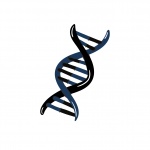





















The requirements to become a Registered Nurse (RN) are generally: passing the 10+2 exam in science subjects, a Diploma in Nursing (called a GNM, General Nursing and Midwifery), and/or getting a B.Sc. Nursing (Bachelor of Science in Nursing) degree.
M.Sc. Nursing, short for Master of Science in Nursing is a postgraduate level programme. The course aims at catering to the field of Nursing and Applied Sciences. The duration of M.Sc. Nursing is for two years. The delivery method of M.Sc. Nursing course includes lectures, seminars, practical work, extensive lab and on-field training. Students have to submit their research thesis in the final semester of the programme. In the final evaluation, class assignments of the students, research project and end-semester exams are taken into account. The eligibility criteria for M.Sc. Nursing includes a Bachelor’s degree in a relevant field. The syllabus of the course is divided into two years. In the first year of M.Sc. Nursing, students study about the Advanced Nursing subjects, Clinical Nursing, Nursing Education and Research and Statistics. In the second year of the programme, students study Nursing Management and work on their research thesis.
1. All India Institute of Medical Sciences- (AIIMS), New Delhi 2. Christian Medical College, Vellore 3. Armed Forces Medical College, Pune 4. King George's Medical University, Lucknow 5. Acharya Institute of Health Science, Bangalore 6. NIMS University, Jaipur 7. Kasturba Medical College, Mangalore 8. Madras Medical College, Chennai
Depending on their location, work setting, and level of education, a registered nurse may perform a variety of duties. While most RNs provide direct patient care, specific job responsibilities and daily activities vary based on the needs of the healthcare team within which the nurse serves, the needs of the patient, and the patient demographics. Typical job duties and tasks of a registered nurse include Conducting physical exams to assess patient health needs and problems, Administering direct care to injured, disabled, ill, or convalescent patients, Reviewing and maintaining medical records, Implementing and developing nursing care plans, Counseling patients and family members on disease prevention and health maintenance, Supervising the work of licensed practical nurses, nursing aides, and assistants, Educating patients about their medical conditions and treatment plans, Maintaining a safe, hygienic working environment, Preparing rooms and medical equipment and decontaminate instruments, Providing emotional and psychological support. Registered nurses also have the potential to specialize in certain areas, such as neonatal, pediatric, geriatric, surgical, and emergency medical care. To succeed in these roles, an RN must possess strong communication skills, be detail-oriented and compassionate, and have the ability to adapt to new technologies, techniques, and medical procedures as they are introduced.